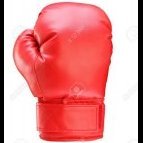Are Thai bank accounts safe (put my mind at ease)
-
Recently Browsing 0 members
- No registered users viewing this page.
-
Topics
-
-
Popular Contributors
-
-
Latest posts...
-
27
Analysis Trump’s 50-Day Pause: Russia’s Green Light for Ukraine Push
I have to correct myself here. Switzerland is not a member of NATO, and Australia is a NATO partner, together with Japan, New Zealand and South Korea. -
230
Why do people want to live in Isaan?
City is fine if want medium level action. If fussy or want lots of action too quiet. The daytrips in CM are far better plus more restaurants. Its better than Hua Hin for food. Markets better too. Being single would be fine. The pm levels are 50 below CM too so thats a plus but still an issue. If CR is 7.5/10, Udon is 8. More to do in city. -
261
Kissing on the mouth
ThreeCardtwink is steadily climbing the ladder of cokwomblery, securing his place as an utterly forgettable, insipid drone - pathetically clawing at relevance and spectacularly missing the mark every time.... nowhere near as entertaining as other trolling twits...- 1
-

-
129
BKK Bank 4 months banked method??
They would not issue a 3 mo statement without the block, or they would not issue a "bank letter" stating current-balance and that you are the owner of the account without the block? It's two separate things. My understanding is that BKB was blocking for the "bank letter" - not a monthly account statement. -
26
SIDS - Sudden Infant Death Syndrome - Is Caused By Vaccines
I would say what is even more important is what theory caused the parents to approve of the vaccination in the first place. The implantation of a false theory into the parents by the experts caused the approval of the vaccination that led to sids. The abomination began as a spiritual poisoning leading to the actual physical world action of vaccinating the babies resulting in sids poisoning. How can you tell the difference between truth and abomination in the spiritual world? It requires some research. Self mutilation and intentionally putting poison into the body in the name of health is the modus operandi of abomination. It is part of a false religion the Holy Bible warns us to avoid. -
96
Beating children
Being a parent would be much easier if the question to beat or not to beat was always answered simply - Yes or No. Unfortunately, there are no simple solutions - constantly beating is bad. But not beating at all is also bad - after all, the child has not yet learned to use the brain to see that he did something wrong. If you do not beat the child because he plays with matches despite your prohibition - you will definitely regret it.
-
-
Popular in The Pub





.thumb.jpeg.d2d19a66404642fd9ff62d6262fd153e.jpeg)







Recommended Posts
Create an account or sign in to comment
You need to be a member in order to leave a comment
Create an account
Sign up for a new account in our community. It's easy!
Register a new accountSign in
Already have an account? Sign in here.
Sign In Now